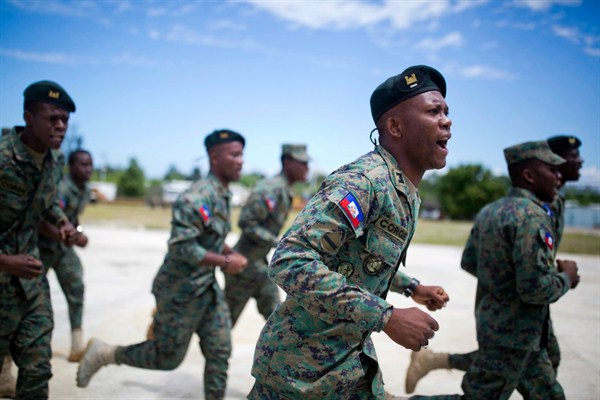Haiti began recruitment this week for a new army, an institution that was disbanded in the mid-1990s under then-President Jean-Bertrand Aristide. The recruitment drive comes as the U.N. Stabilization Mission in Haiti is being replaced by a smaller mission focused on rule of law. In an email interview, Geoff Burt, executive director of the Center for Security Governance and editor-in-chief of Stability: International Journal of Security and Development, describes the Haitian army’s troubled history and the challenges to making the new one both effective and apolitical.
WPR: Why was Haiti’s army disbanded in 1995, and what security threats or other factors are prompting the government to create a new one?
Geoff Burt: Haiti’s armed forces were disbanded for two main reasons: their history of abuse as a tool of repression by Haiti’s ruling elite and their continual interference in Haiti’s political process. The fact that Haiti, a country located on an island with only one neighbor, faces few external threats made that decision easier to make, but the logic behind disbanding the army was based on the harm that it caused domestically.

